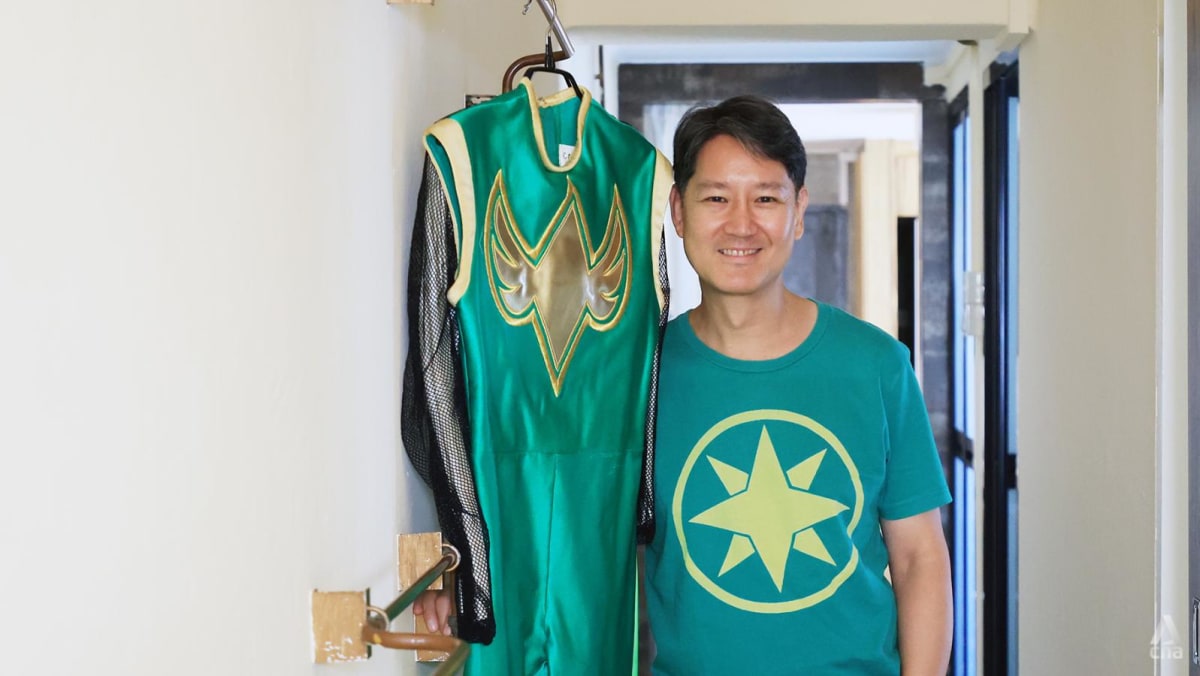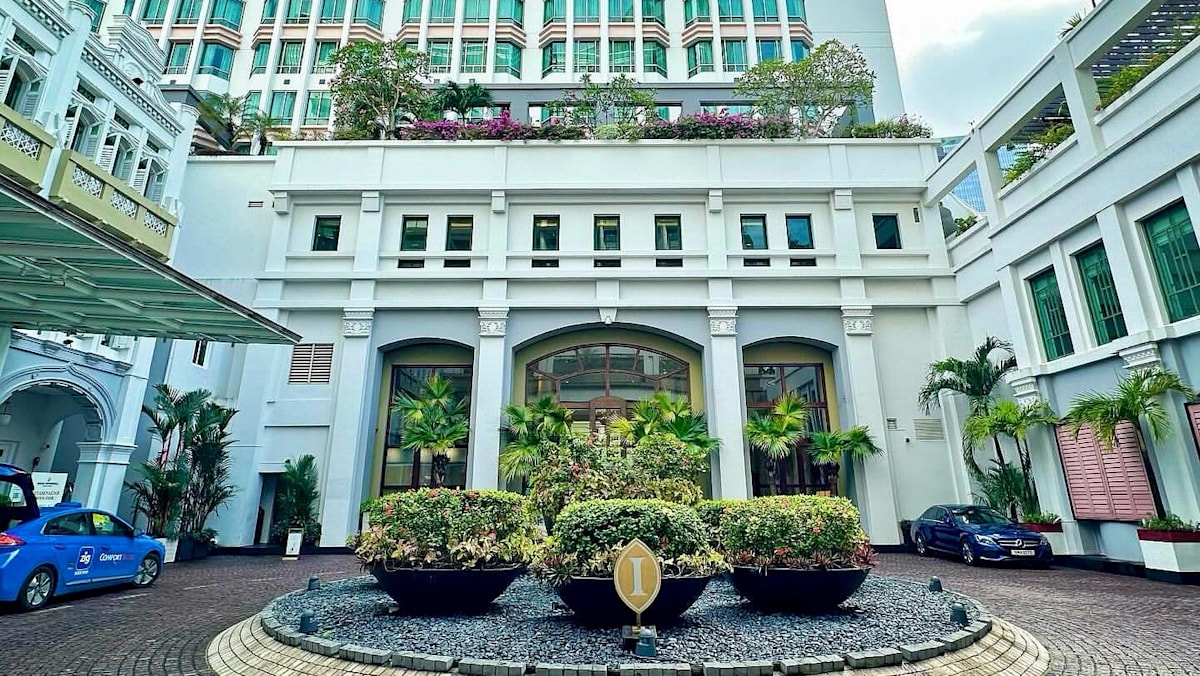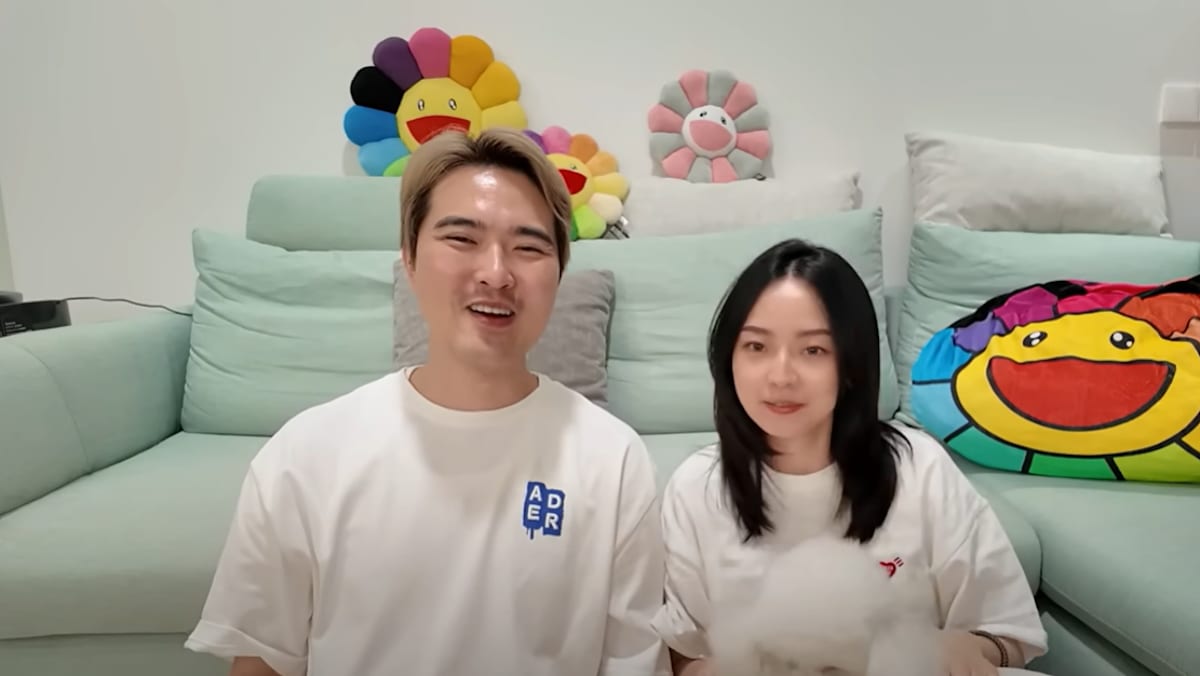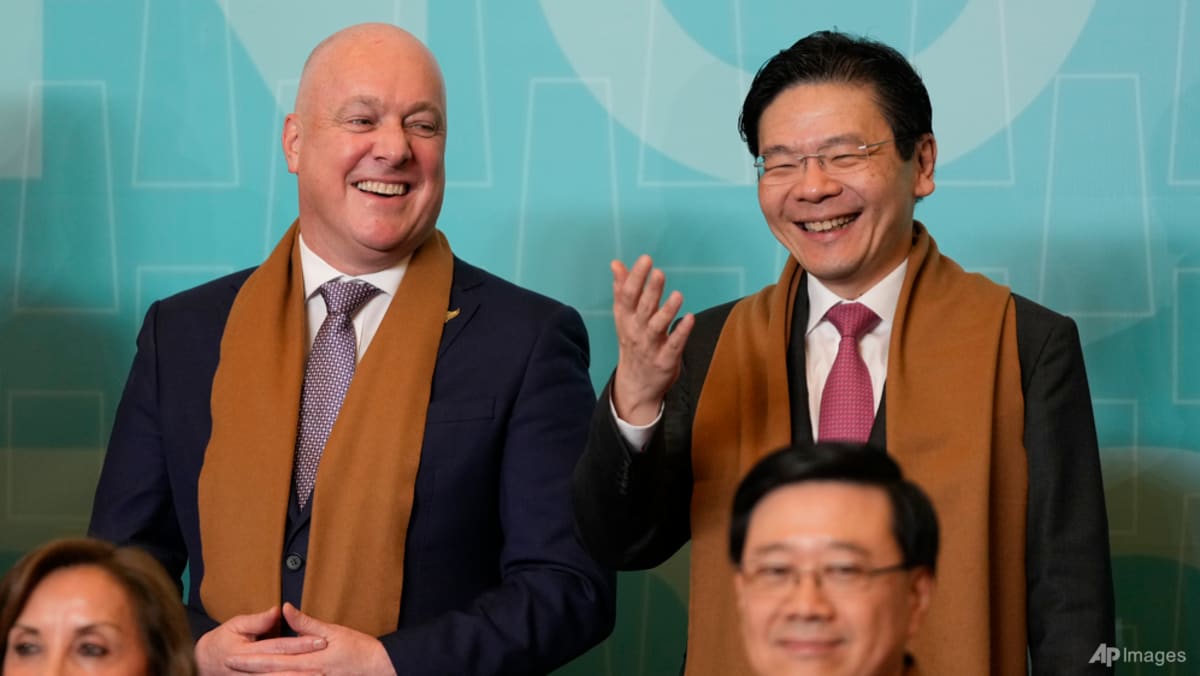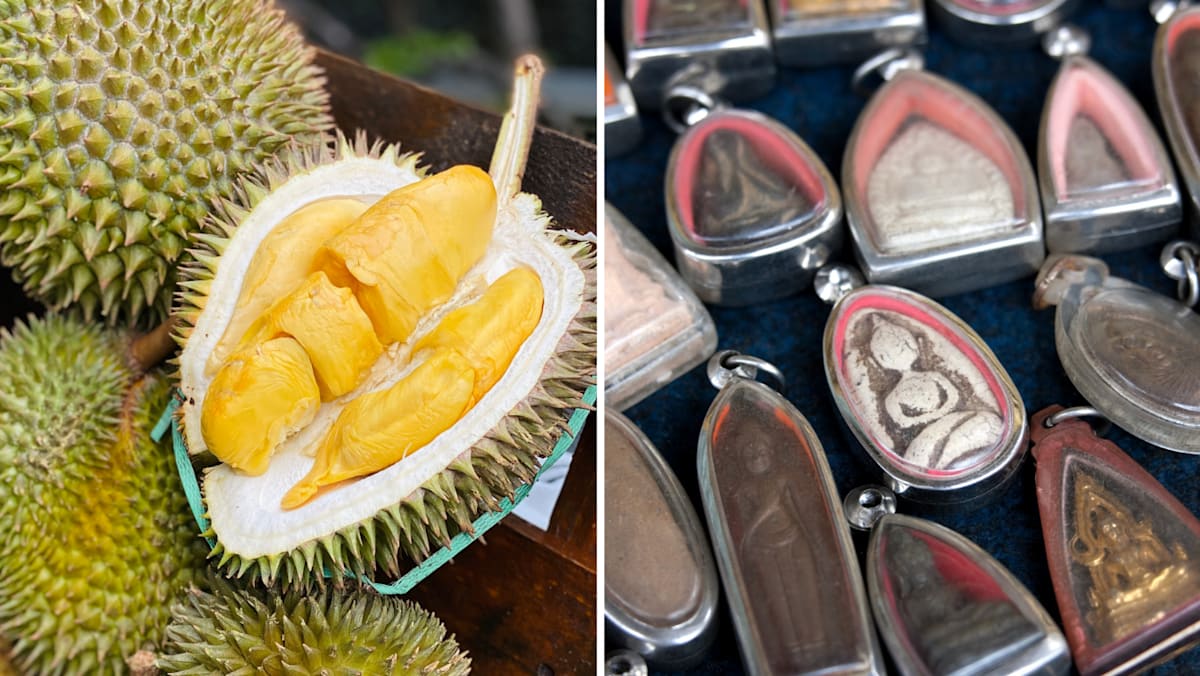LIFE IN SINGAPORE
In Singapore, Mr Chan’s career quickly gained momentum – not from Power Rangers fame, but because being in an Asian country opened doors to lead roles.
Having mostly auditioned for minor parts in Australia, he suddenly found himself considered for romantic leads and main characters, landing “pretty major” roles in the local sitcom My Sassy Neighbour, the 2008 romance film The Leap Years, and a stage musical.
While sharing an apartment with other actors, Mr Chan met fellow actor Christian Lee, an American.
Bonding over their love for the craft and frustration with the limitations they faced as actors, they co-founded the video production firm BananaMana Films in 2009, stepping away from acting to produce short films online.
“(We) weren’t always happy as actors being in the shows that we were in. We always thought, ‘oh, we can do better’. And of course, when we started we couldn’t do better at all – we were horrible,” said Mr Chan with a laugh.
But the duo persevered, teaching themselves how to operate cameras, handle audio, write scenes and everything in between.
“We did a lot of skits and short films that were, to this day, just horrific. But we’ve kept them up online, just to remind ourselves and other people that you have to start somewhere.”
Their work eventually caught the eye of filmmaker and then-Mediacorp commissioning editor Lionel Chok.
This led to the creation of What Do Men Want, a 13-episode drama-comedy on Toggle, Mediacorp’s newly launched digital platform at the time. It was produced on a modest budget and tight timelines.
As they began weighing different projects, they shifted their mindset from asking: “Would we do this for free?” to “Would we pay for the opportunity to do this?”
This mantra made them more selective about what they took on, and in 2014 they channelled their energy into a passion project – the short-form web series Perfect Girl, made for just S$5,000 (US$3,900).
The show won multiple awards – including at the Los Angeles Web Series Festival – holding its own against productions with far larger budgets.
It was also picked up by regional streaming platform Viki. Then a few months later, Netflix acquired the rights, making Perfect Girl the first Singaporean drama on the global streaming giant.
Building on that success, the duo produced Jimami Tofu in 2017, a feature film promoting Okinawa to Singaporeans. Rather than creating a standard tourism piece, they wrote it as a romance woven with traditional Okinawan cuisine and Ryukyu culture.
The film became the longest-running independent release at Golden Village cinemas, screening for two-and-a-half years until the COVID-19 pandemic, said Mr Chan.
He claimed the film even inspired Jetstar Asia’s first direct flight from Okinawa to Singapore, after the airline’s head of business development attended its preview.
Before the film’s theatrical debut, Mr Chan and Mr Lee hosted an outdoor screening at the Singapore Botanic Gardens – an event that sparked their next big idea.
Then, they noticed a recurring issue with outdoor cinema: most relied on external speakers, resulting in compromised sound quality that, they felt, diminished the immersive experience.
“We broke the record for the number of people coming out to the Botanic Gardens for a movie screening, and it was beautiful. Everything was amazing, except for the fact that the sound, for us, was horrible,” he said.
“You can’t scale good quality surround sound to 2,000 people. It becomes reverberant, echoey, unbalanced.”
The pair worked with developers to create a solution.
The result was Cinewav, an audio-tech startup that lets audiences plug in their own earphones to stream high-quality, synchronised audio from their smartphones – transforming outdoor viewing without the need for loudspeakers, and also reducing noise complaints from nearby residents.





